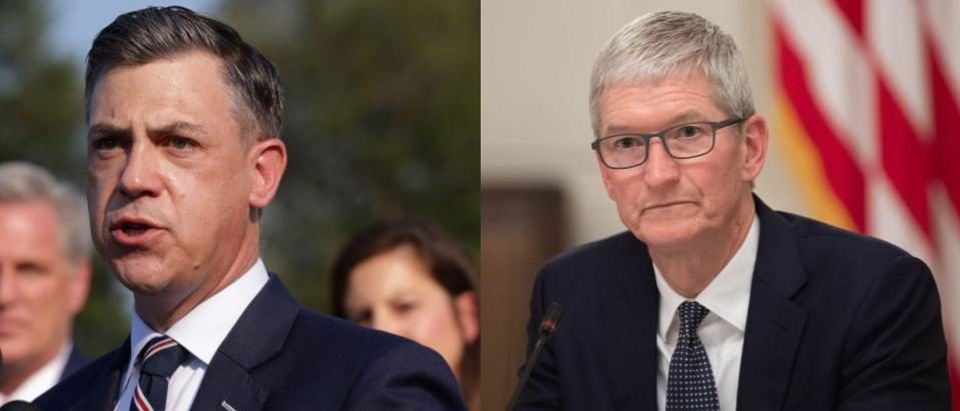Republicans in the House of Representatives are demanding an explanation of Apple’s refusal to engrave certain words on custom devices in Chinese markets.
The letter writers, led by Indiana Reps. Victoria Spartz and Jim Banks, cite researchers from the University of Toronto who found that the tech giant broadly censors political content in mainland China, Hong Kong, and Taiwan. The company’s refusal to engrave certain terms contradicts its public statement on human rights, the Republicans argue, while going beyond what Chinese law requires for content censorship.
The Republicans are requesting a full list of the terms that Apple will not engrave on its products in mainland China, Hong Kong, and Taiwan, as well as the company’s justification for doing so in Hong Kong and Taiwan. Mainland China’s laws on censorship do not apply in Hong Kong, and Taiwan provides broad free speech protections for its residents. (RELATED: Biden Admin Invites Taiwan To ‘Summit For Democracy,’ China Calls It A ‘Mistake’)
“As one of America’s largest publicly traded companies, Apple owes transparency to American investors and the public regarding any involvement in aiding censorship by the Chinese government. Apple’s leadership often states its uncompromising commitment to privacy, civil liberties and transparency, so we look forward to a prompt response to our inquiry,” Spartz said in a statement to the Daily Caller.
Read the letter here:
Apple Engraving Policy China by Michael Ginsberg
“Apple tried to water down a bill to crackdown on companies that use Uyghur slave labor. Now, they’re censoring on behalf of the Communist Party. No company that’s prospered off freedom should lobby against it at home or restrict it abroad,” Banks added.
The letter-writers note censored content like “Falun Gong,” “Ai Weiwei,” “Freedom of the Press” and “Human Rights,” adding that Apple’s policies “appear to go beyond legal mandates and regulations established within China.”
“Many American companies operate within Communist China and the surrounding Asian markets,” they add. “Some companies, such as Meta (Facebook) and Twitter are banned in China or don’t attempt to operate in China, opting to not submit their company and customers to the policy objectives and cultural constraints of the CCP.”
In addition to its censorship practices, Apple has been accused of employing slave labor in its supply chain, while providing user data to a Chinese state-owned telecommunications company. In addition, the company has lobbied against the Uyghur Forced Labor Prevention Act, a bill that would crack down on slave labor in Xinjiang and surrounding provinces.


